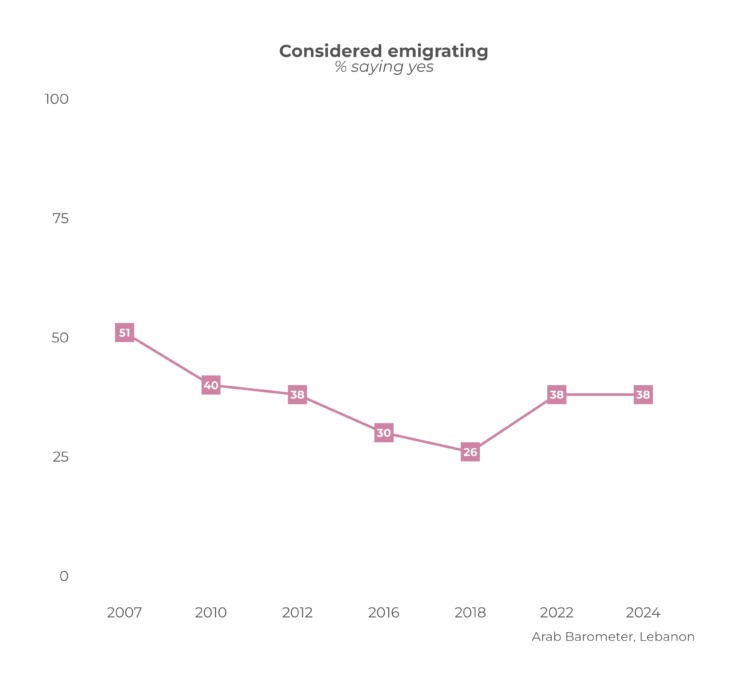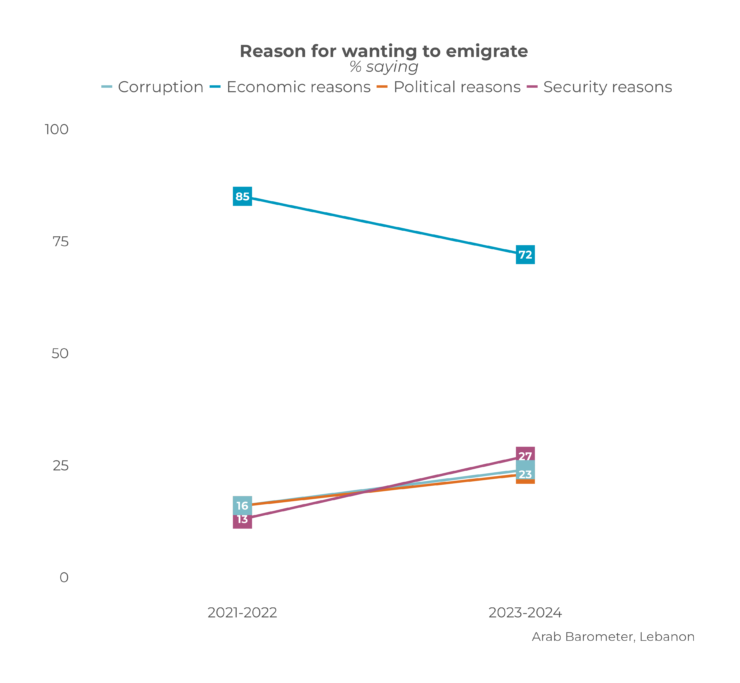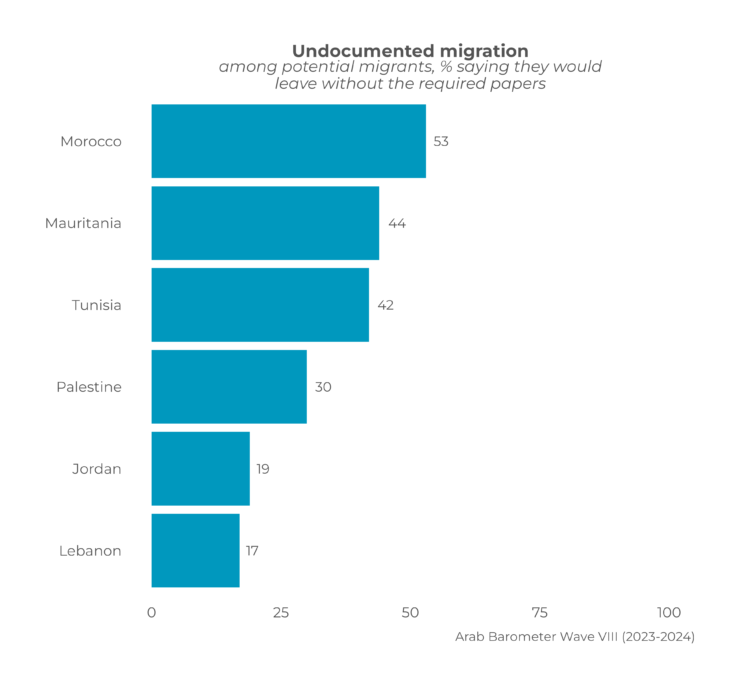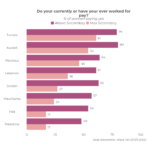In the eighth wave of Arab Barometer, we interviewed 2,400 Lebanese citizens between February and April 2024 to help shed light on their migration preferences. This survey provides a snapshot of how current economic, political, and security challenges—including the escalating tensions between Israel and Hezbollah—are shaping these migration aspirations.
This factsheet highlights key findings from the survey, with links to more detailed information where available.
Key Findings
- Desire to Emigrate: 38% of Lebanese citizens express a desire to leave their country. This figure remains identical to levels seen in 2022 and 2012, though it is 12 percentage points higher than the 26% recorded in 2018. Despite this increase, it remains below the 51% recorded in Arab Barometer’s first survey of Lebanon in 2007.

- Demographic Differences:Youth and college-educated Lebanese are more inclined to emigrate. More than half (58%) of those ages 18-29 express their desire to leave Lebanon, which is double the 29% of those aged 30 or older who share the same desire. Similarly, people with college education tend to want to migrate more than their less-educated compatriots (46% vs. 33%).
- Economic Motives: Economic conditions continue to be the leading reason for emigration from Lebanon. Given that virtually no citizens have a positive view of the economy or expect it to improve, it is not surprising that roughly seven-in-ten potential migrants in Lebanon (72%) state economic conditions as their primary motive for leaving.
- Security and Political Factors: In Lebanon, economic concerns remain the primary driver of emigration. However, security and political issues have become increasingly significant factors for those considering migration. Security concerns, heightened by growing tensions between Hezbollah and Israel, have risen to become the second most commonly cited reason for migration, motivating 27% of potential migrants in 2024—an increase of 14 percentage points from 13% in 2022. Concerns about corruption, a prevalent problem recognized by nearly all Lebanese, have also emerged as a driver for migration, rising from 16% in 2022 to 24% in 2024. Similarly, the percentage of Lebanese prospective migrants citing political issues as a reason for migration has increased from 16% in 2022 to 23% in 2024. Note: Percentages do not sum to 100% because respondents were allowed to select all reasons that apply.

- Rising Educational Aspiration: Lebanese are increasingly motivated by the pursuit of better educational opportunities abroad. The latest data shows that 21% express a desire to leave for education in 2024, an increase from 14% in 2022.
- Low Rates of Undocumented Migration: Despite ongoing economic, political, and security challenges, only 17% of potential Lebanese migrants say they would leave their country without proper documentation, the lowest rate among MENA countries surveyed in 2023-24.

- Top Migration Destinations: Among Lebanese prospective migrants, Canada is the most preferred destination, with 32% citing it as their top choice, followed by Germany at 28% and France at 25%. Australia is ranked fourth at 24%, while the United States is fifth at 21%. In the Gulf region, Qatar leads with 21%, the United Arab Emirates follows at 16%, and Saudi Arabia is next at 12%.
For more insights, read the following reports:
Migration in MENA (2023-204) & Migration in MENA (2021-202)
Please credit Arab Barometer in any dissemination.
Arab Barometer Media Resources
For media inquiries, please contact Aseel Alayli, Director of Brand, Marketing and Global Communications, at aalayli@princeton.edu.
• Website: www.arabbarometer.org
• Resources for Media: www.arabbarometer.org/media-news
• FAQ: www.arabbarometer.org/frequently-asked-questions
• About Arab Barometer: www.arabbarometer.org/about
• Methodology: www.arabbarometer.org/survey-data/methodology


